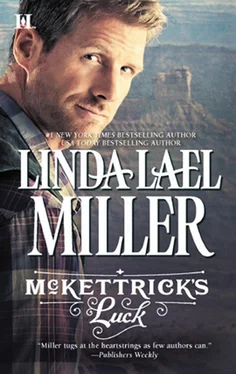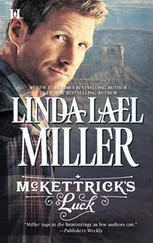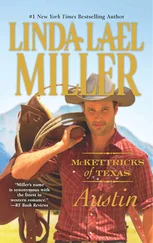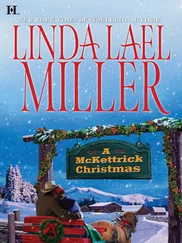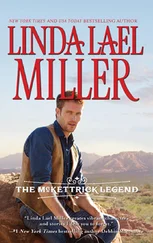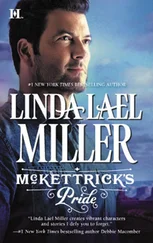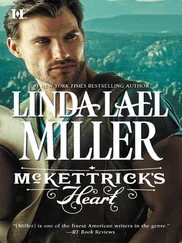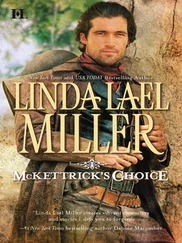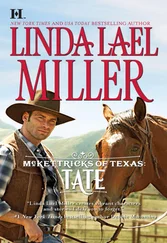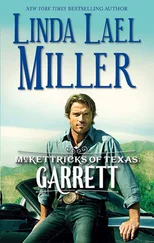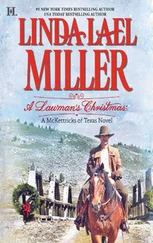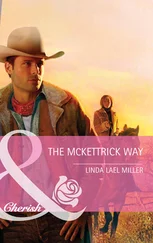Cheyenne was speechless.
Jesse reached up, helped her down to the ground.
The bottoms of her feet stung at the impact, and she was grateful for the pain because it broke the spell.
“It’s magnificent,” she said, almost whispering.
Jesse nodded, took off his hat as reverently as if he’d just entered a cathedral. Looking up at him, she saw his face change, as though he were drinking in that land, not just with his eyes, but through the pores of his skin.
Cheyenne reminded herself that the tract wasn’t part of the Triple M; if it had been, there wouldn’t have been a hope in hell of developing so much as an inch of it. She’d been over the public records a dozen times, knew Jesse had purchased the land two years ago from the state. It must have taken a chunk out of his trust fund, even though the price he’d paid was a fraction of what Nigel was willing to pony up.
As if he’d heard her thoughts, Jesse turned slightly and looked down into her eyes. “When we were kids, Rance and Keegan and I used to camp up here. I still like to bring a bedroll and sleep under the stars once in a while. A couple of years back, about the time the governor of Arizona decided not to turn it into a state park, I won a big poker tournament, and I bought it outright.”
“That must have been some tournament,” Cheyenne said, as casually as she could.
“World championship,” Jesse answered, with a verbal shrug. “I’m going back to Vegas in a couple of months to defend my title.” He turned to survey the land again, gesturing with his hat. “That creek practically jumps with trout every spring. There are deer, as you can see, as well as wolves and bobcats and coyotes and bear—just about any kind of critter you’d expect to run across in this country.” He watched her for a few moments, choosing his words, turning his hat in his hands just the way any one of his cowboy ancestors might have done. “Where do you figure they’d go, if you and your company put in a hundred stucco boxes and a putting green?”
CHAPTER FOUR
CHEYENNE LOOKED away, blinked. Wished the land would disappear, and Jesse’s question with it.
Remember your mother, she thought. Remember Mitch.
Jesse turned her gently to face him. “When Angus McKettrick came here in the mid 1800s,” he said, “the whole northern part of the state must have looked pretty much like this. He cut down trees to build a house and a barn, and used windfall for firewood. He put up fences to keep his cattle in, too, but other than that he didn’t change the land much. His sons built houses, too, when they married—my place, the main ranch house where Keegan now lives, and the one across the creek from it. That belongs to Rance. They’ve been added onto, those houses, and modernized, but that’s the extent of it. No short-platting. No tennis courts. We McKettricks like to sit light on the land, Cheyenne, and I don’t intend to be the one to break that tradition.”
Cheyenne gazed up at him, full of frustration and admiration and that infernal drumbeat, rising from her own core to pound in her ears. The majesty of the land seemed to reply, like a great, invisible heart, thumping an elemental rhythm of its own. “You promised you’d look at the blueprints,” she said. It was lame, and she could feel all her hopes slipping away, but still she couldn’t let go.
Jesse put his hat on again, helped Cheyenne back up onto her horse, and mounted the gelding. Neither of them said anything during the ride to the ranch house.
“I do care what happens to the land,” she told him, quietly earnest, when they’d reached the barn and dismounted again.
“Do you?” Jesse asked, but he clearly didn’t expect an answer. “Get your blueprints,” he urged with a nod toward her rental car. “I’ll put Pardner and Minotaur away and meet you in the schoolhouse.”
She ran damp palms down the thighs of Callie McKettrick’s jeans and returned his nod. She watched until he disappeared into the barn, leading both horses behind him.
“What do I do now?” she asked softly, tilting her head back to look up at the sky.
She stood there for a few seconds longer, then turned and went to the rental car. Plucked the thick roll of blueprints from the backseat.
The schoolhouse was cool and shadowy, and dust particles, stirred by her entrance, bobbed like little golden flecks in the still air.
Cheyenne laid the roll on a large table with an old chair behind it, and looked around with interest. Someone had scrawled a list of stock quotes on the blackboard, and there was an old-fashioned rotary phone on the table next to a vintage globe, but beyond those things, the place probably hadn’t changed much since it was built.
She ran a hand across the single row of small desks, admired the potbelly stove and returned to the globe.
The world was profoundly different now she thought sadly, giving the miniature planet a little spin. New borders. New wars. AIDS and terrorism.
Cheyenne heard Jesse come in but she didn’t turn to look. For a heartbeat or two she wanted to pretend she was Chloe McKettrick, the schoolteacher bride, and Jesse was Jeb. As long as she didn’t make eye contact, she could pretend.
“There were never more than a dozen pupils at any given time,” Jesse said quietly. “Just Chloe and Jeb’s kids, their cousins and a few strays or ranch-hands’ children.”
“It must have been wonderfully simple,” Cheyenne said very softly.
“It was hard, too,” Jesse answered. She knew he was standing next to the big table, heard him slide the rubber bands off the blueprints and unroll them. “No running water, no electricity. We didn’t have lights out here until well into the thirties. Holt’s place had a line in from the road from about 1917 on, but all it powered was one bulb in the kitchen.”
Cheyenne forced herself to turn around and look at Jesse. Just briefly, she could almost believe he was Jeb, dressed the way he was with his hat sitting beside him on the tabletop. She knew which was Holt’s place, which had been Rafe’s and Kade’s—everyone who’d ever spent any time at all in Indian Rock had heard at least the outlines of the family’s illustrious history—but hearing it from Jesse somehow made it all seem new.
She shook her head, feeling as if she’d somehow wandered onto the set of an old movie, or fallen headlong into a romance novel. It was time to stop dreaming and start selling—if she didn’t convince Jesse to part with that five hundred acres, well, the consequences would be staggering.
“It’s wonderful that the ranch has been so well preserved all this time,” she said as Jesse studied the blueprints, holding them open with his widely placed hands, his head down so she couldn’t see his expression. “But the land we’re talking about has never been part of the Triple M, as I understand it.”
Jesse looked up, but he was wearing his poker face and even with all the experience Cheyenne had gathered from dealing with her cardsharp father, there was no reading him. “Land,” he said, “is land.”
Alarms went off in Cheyenne’s head but she kept her composure. She’d had a lot of practice doing that, both as a child, coping with the ups and downs of a dysfunctional family, and as an adult struggling to build a career in a business based largely on speculation and the ability to persuade, wheedle, convince.
She moved to stand beside Jesse, worked up a smile and pointed to a section in the middle of the proposed development. “This is the community park,” she said. “There will be plenty of grass, a fountain, benches, playground equipment for the kids. If we dam the creek, we can have a fishpond—”
Too late, Cheyenne realized she’d made a major mistake mentioning Nigel’s plans to change the course of the stream bisecting the property before flowing downhill, onto and across the heart of the Triple M.
Читать дальше
